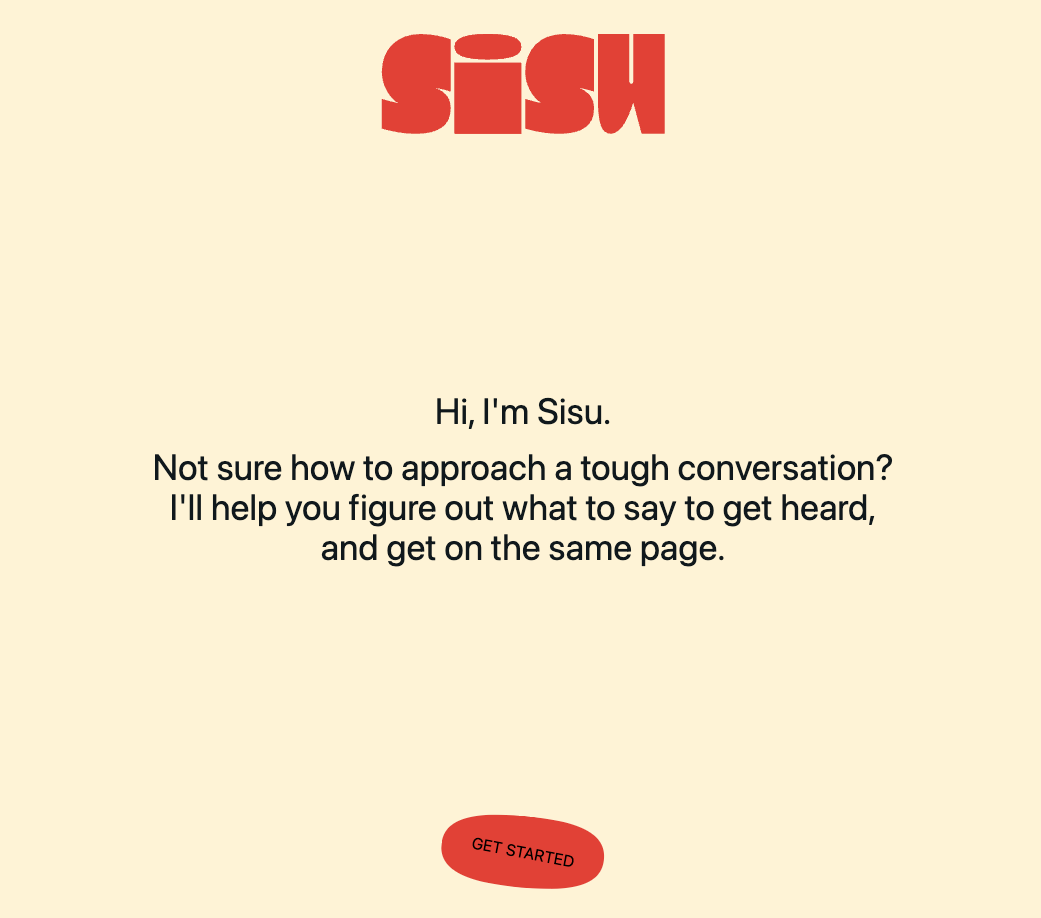At the end of the handful of long-term romantic relationships I’ve had in my life, I was often given the advice to preserve my singledom as long as I could to learn about myself. This always puzzled me. I wondered why, culturally, we seem to believe that we absorb more as free agents than as people inside relationships. I have a generally opposite impression: that relationships create tighter, hotter containers that cause our metaphorical ‘atoms’ to move and collide with each other more frequently. More collisions = more learning.
In my experience, the vast majority of the learning in a romantic relationship boils down to the presence of conflict.
I find the mirror of another person intimately involved in my life to be highly useful. They offer one more set of eyes and ears to pay attention (“You sounded really impatient on the phone earlier. Do you think you should have cut them some more slack?”), to push back (“I want to do it this way instead”), and ideally — through repetition and reconciliation — to remind us that love and disagreement are a part of the dance and can co-exist.
With no choice but to reckon with someone else’s preferences, perspective, and emotional experience, I’ve gotten to practice all kinds of useful techniques: things like active listening, or giving myself just a little space between a stimulus and my reaction. I’ve gotten more comfortable giving a little to get a little in return. I’m better at using ‘I’ instead of ‘You’ language, and not generalizing too hard (“You always do this!”). Arguments mean I learn about my partner, but I also learn about myself. I get feedback. I determine my limits. And I’ve been consistently humbled by the hills I want to die on, the patterns I repeat, and the blind spots that I keep missing.
Historically, I’ve found conflict especially valuable in my romantic relationship because it was so much less likely to come up in my friendships.
I don’t think that’s because my friend relationships are all rainbows and butterflies, but rather because there is far less safety to ‘go there’ with friends. I’ve been trying to tease out what the cultural messages are that I think I’ve received. Maybe something like…Conflict with lovers: tough but necessary! Conflict with friends: avoidable, regrettable drama.
Despite strong societal stories about how much our love lives affect our wellbeing, the stakes with friends can feel even higher. Friendships may be the “single most important factor influencing…our happiness,” according to Dunbar, famous for Dunbar’s Number. Friends are people who love us purely because they enjoy time with us — making them the least transactional relationships in our lives. We expect the closest ones to be durable, even lifelong. No wonder our friendships’ contribution to our sense of self love and belonging is so profound (and why it feels so destabilizing when they’re in a rocky place). But on the other hand, we don’t always seem to have faith that friendships can survive confrontation, judgment, or negative feelings in quite the same way we believe is possible with romantic partners.
Friendships often aren’t supported by the tight, intertwined intimacies of a romantic relationship (things like sharing a home, close ties with their family, the upcoming weekend away you’ve already booked) — which I believe we all need more of, for what it’s worth. What if you can’t see eye-to-eye with a friend, and a few weeks pass? Then what? Fade to nothing without any forcing function to reconcile? It’s a big risk, unbalancing both yourself and them. I don’t blame people for sitting tight and hoping the difficult feelings pass.
There are also certainly less social scripts for it. I’ve seen influencers harshly criticize people as childish and unkind for ghosting their dates. But when things aren’t going great in a friendship, you’ll often hear that the most humane thing to do is to slowly and gently ghost them. Why the difference? Because there isn’t a playbook for being direct about hard things with our friends?
What would it take to normalize healthy conflict with friends?
A friend of mine who I’ll call Alana recently told me she was struggling with feelings of distance in a couple of her female friendships. One friend had been difficult to pin down and schedule time with. Another had been snippy, oscillating between passive-aggressive and aggressive-aggressive. My friend decided to call these things out. In our conversation, Alana was quick to take the responsibility: if she was the central node of several challenging dynamics, she figured, then she should unpack what it was about her that was causing things to be this way.
It was interesting to hear Alana question herself because of the presence of conflict with friends in her life. Her instinct was to use it as a bellwether for her health as a social being. We sat in my car for a long time, unpacking the judgments we have about being someone who gets into conflict with friends. But I wonder if that type of judgment is misplaced. Unacknowledged conflict can be incredibly painful too, even if it’s never actively confronted. Isn’t it brave to openly face the issue — pro-social, even? Isn’t it hopeful, to believe that things can change?
This is a complicated subject. Baumeister’s Belongingness Hypothesis proposes that people need frequent contact with others, and second, that these interactions should be positive and pleasant (or at the very least mostly free from conflict or negativity). I’m definitely not suggesting that it’s enlightened to bully anyone with your perspective, or goad people into arguments. I also don’t think that it’s productive to make frequent mountains out of molehills. If someone hears about every time they bug you, they may have less generosity or goodwill to offer when you call out something that actually really matters.
So what actually makes for ‘healthy’ conflict? Liz Tran, executive coach and the author of The Karma of Success, says healthy relationships can exist when respecting your own needs isn’t in conflict with respecting their needs. Perhaps it follows that ‘healthy’ conflict is the mutual, good-faith effort to maintain that homeostasis. I view opening the door, saying “Hey, something feels off here — should we talk about it?” or “That thing you said really upset me, and I want to explain why” as acts of investment in a friendship. Having the conversation isn’t inherently hostile. And silence isn’t necessarily an act of respect. Emotional ghosting can happen even when you’re sitting across from them at dinner or still showing up to their holiday party.
A few weeks ago, I opted for a conflict trust-fall. A friend I’ll call Sloane texted me asking to hang out that weekend. The message was casual and nice, but I felt aversion flood my body when I saw it appear on my screen. I didn’t want to see her, and I couldn’t even put a fine point on why. I figured I had three choices: I could ghost, which would be hurtful to her. I could suck it up, which would be painful to me. Or I could tell her the truth.
Here are a few excerpts of the longer text that I sent:
Hi! I’m texting this but would love to talk on the phone or go for a walk to go deeper. Mostly, I want to hear how this lands for you and what your perspective is, since this is just my side. Lately for some reason, I have been feeling overwhelmed when you reach out, or when we spend time together. I can’t quite figure out why that is, but something feels heavy and not easy.
When we got on the phone the next day, we hashed it out. The tone was subdued, and often sad, and occasionally a little spiky. But mostly, we just listened to each other. Sloane shared the ways she felt I was blaming her for a dynamic that the two of us were creating together. I revealed that I’d been feeling passed over by her ever since telling her I was pregnant — something I hadn’t even realized was an issue for me until this phone call. We acknowledged each other’s perspectives. Suddenly it clicked: I often feel aversion when I’m feeling something that I don’t feel able to share. Here was that same pattern all over again. What a relief for it to come to a head.
I got off the phone feeling tired, but also a lot lighter. I’m not immune to Baumeister’s Hypothesis: I want things to be positive and pleasant and easy! But I love this friend for being someone safe to ‘go there’ with. She’s not someone I was willing to lose just because I couldn’t handle the conversation.
For what it’s worth, on a ‘conflict is possible, conflict is okay, conflict produces something new’ kick, I took a similar approach with someone else whom I’m not as close to. They asked me a favor that I didn’t feel 100% comfortable giving. So I shared my mixed feelings vulnerably, and I never got a text back in response. And you know what? That was a learning too. Honesty isn’t a silver bullet to resolution. But conflict almost always reveals.
I’ll leave you with a few questions inspired by Conscious Leadership Group’s Willingness Questions:
Do you have any withholds (e.g. things that you want to say but don’t) that are taking up emotional space for you?
Are there aversions you keep shoving down because they’re scary or inconvenient?
Are there any dynamics you have with friends that are juicy/interesting/entertaining to talk about with other people, but that feel pretty bad when it’s just the two of you together? Are you willing to give up the former to fix the latter?
Are you as interested in learning as you are in being right?
Can you see conflict as a way to actually honor and elevate the intimacy of your friendships?
Can you shift to see any difficult conversation as a chance to learn about you and the other person — and therefore as productive — no matter the outcome?
I also have one suggestion: a tool called Sisu.
Full disclosure: Sisu is a pet project of mine and my friend Jeremy Kirshbaum’s!
Sisu is designed to help you navigate tough conversations. It’s based on Enneagram. Jeremy and I were excited to think about how the personality system could reveal why you and someone else might view the same situation very differently — and what common ground you might share based on your innate motivations and worldviews.
All you have to do is tell Sisu a little bit about the tricky conversation you’d like to have, and it will give you some ideas for how to approach the conversation as productively as possible. It’s not just for friends: it works for colleagues, family members — anyone, really. I’ve learned a ton from using it. If you end up trying it, I’d love to hear about your experience, and what happened next.








"I view opening the door, saying “Hey, something feels off here — should we talk about it?” or “That thing you said really upset me, and I want to explain why” as acts of investment in a friendship." -- very true!!
One of the most painful but also realisations I had this past year is how important reciprocity is for my friendships. I found that there were a number of important relationships to me that we were merely going in the same direction and I (proudly) "never asked for anything". but also never really knew if we were reciprocal, and when we came to conflict - a few crumbled in a really painful way. I love that line you wrote. "... But conflict almost always reveals."